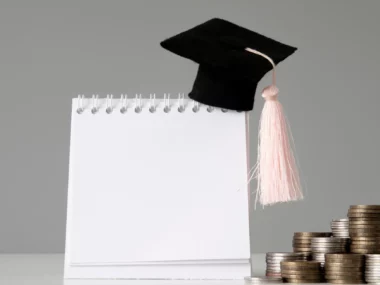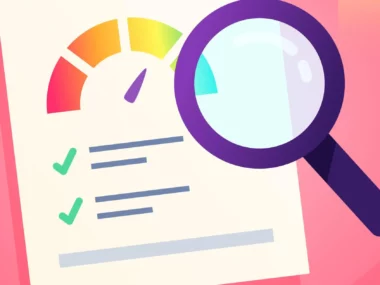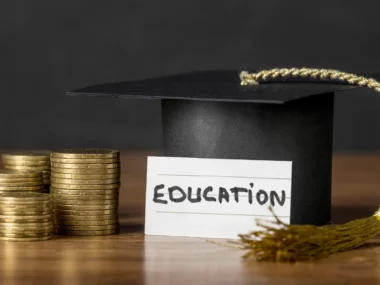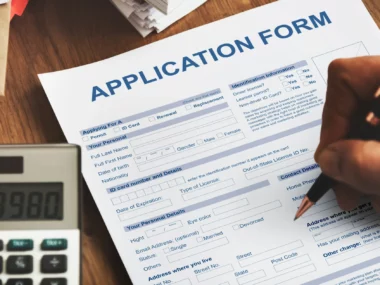Table of Contents
As a student in Alberta, Canada, if you don’t have adequate finance and can’t find scholarships either, student loans can be a very helpful option.
There are federally-backed student loans and private student loans with great interest rates and repayment terms. It is up to you to conduct your research and pick whichever lender suits your needs.
Federal government student loans offer numerous benefits that make them very appealing, including low-interest rates, flexible repayment terms, loan forgiveness programs, and more.
For private student loans, there is no limit to how much you can borrow, and if you do a thorough comparison of offers, you should be able to get loans with favourable interest rates.
Besides picking the right lender, you also need to understand all that is involved in the borrowing process. This will help to ensure that you make the right decision.
Continue reading to learn all about How to Apply for Student Loans in Alberta Canada.
Gain more perspective of student loans here.
What are student loans?
These are loans that students borrow from either the federal government or private lenders to cover post-secondary education costs and other school-related expenses.
When you borrow from the federal government, you are not obligated to begin repayment until six months after graduation, while private lenders expect you to begin repayment while you’re still in school. There are many other features that differentiate the two types of student loans.
Types of Student Loans
There are two major types of student loans namely:
- Federal student loans; and
- Private student loans.
Federal Student Loans
Federal student loans are loans granted by the Canadian government. This is the most prevalent type of student loan due to the many merits that it presents compared to private student loans. Federal student loans usually have low-interest rates and flexible repayment plans.
Private Student Loans
These are student loans gotten from banks, credit unions, and online lenders. They usually have higher interest rates compared to federal student loans, and their repayment plan is more rigid. They also don’t offer any kind of loan forgiveness or debt relief.
How To Apply For Government Student Loans In Alberta Canada
1. Understand what Student loan is all.about: Find out all that you can know regarding student loans in Alberta, Canada.
2. Find out if you’re a full-time or part-time student: The next step is to figure out whether you’re a full-time or part-time student, as this will impact the amount that will be lent to you.
3. Find out if you’re eligible for student loans: You need to know if you qualify for government student loans. To qualify, you must:
- Meet residency or citizenship requirements.
- Have a need for the loan.
- Be registered in a program approved by Student Aid.
4. Gather the necessary information: You then need to gather certain information such as personal information, academic information, financial information, Alberta student number, Social Insurance number, and so on.
5. Create a Student Aid account: The next step is to create a student account which you will use to apply online. Visit Alberta.ca Account, and follow the steps to get a verified account.
6. Apply for the loan: Full-time students will apply online through their Student Aid account while Part-time students must fill the part-time application form and follow the directions on the form to submit.
7. Await confirmation: After some time, you will get one of these in your Student Aid account inbox:
- A request for relevant information that wasn’t included in your original application; or
- An award letter stating the you’ll get; or
- A rejection letter.
How to apply for Private student loans in Alberta Canada
To apply for a private student loan in Alberta Canada, all you have to do is contact a private lender, who will probably request for the following:
- Your credit score and credit history.
- Your bank statement.
- Your Social Insurance Number (SIN).
- Evidence of Income.
- An acceptable form of identification.
What Is Student Loan Forgiveness?
This is a process whereby a lender decides to forgo a part or the whole of a borrower’s federal student loan. This can be a way out for borrowers who have been struggling to repay their student loans. This program only applies to borrowers who are eligible.
One of the most important things to know about student loan forgiveness is that it is only offered by federal lenders. You can’t get this kind of benefit from private student loans. When a borrower applies for student loan forgiveness, he is expected to keep making his monthly payments, pending the time that his application will be approved.
Student Loan Forgiveness in Alberta Canada
It is hard to get your student loans forgiven in Canada, as the government doesn’t have loan forgiveness programs that cover every borrower. The only ones who are eligible for loan forgiveness are certain health care professionals, under certain conditions.
Even though loan forgiveness don’t apply to every borrower in Canada, there are numerous programs introduced by the federal government and provincial governments to help provide some relief on one’s debt.
Who Qualifies For Student Loan Forgiveness In Alberta Canada?
As it has been established, only healthcare professionals can have their student loans forgiven in Canada, if they meet certain criteria. To qualify, a borrower must:
- Be employed as a medical professional.
- Have been employed for at least a year.
- Work in a rural community.
- Give a minimum of 400 hours of service in his/her community.
Which Medical Professionals Qualify For Student Loan Forgiveness In Alberta Canada?
There are numerous medical professionals who qualify for student loan forgiveness in Canada. Some of them are:
- Registered Psychiatric Nurses
- Licensed Practical Nurses
- Family Doctors
- Nurse Practitioners
Do Non-Medical Professionals Qualify For Student Loan Forgiveness?
Like it was initially stated, student loan forgiveness only applies to medical professionals but as a non-medical professional who needs debt relief, there are certain options that allows you to pay less on your loan amount. They include:
1. Student Loan Repayment Assistance Plan (RAP).
2. Consumer Proposal.
3. Provincial Loan Forgiveness Programs.
Student Loan Repayment Assistance Plan (RAP)
This program helps to reduce a borrower’s monthly payments based on gross family income. Borrowers with a high family income will get less of a reduction compared to borrowers with low family income. The Student Loan Repayment Assistance Plan (RAP) is operated by the National Student Loan Centre.
Borrowers can apply for RAP once they begin repayment and also during repayment. Once your application has been approved, the government of Canada will pay the interest on your loan for five years post-graduation and if you remain in the program for the whole five years, the government will start paying both your principal and interest amount till the end of the program.
Who Qualifies for Student Loan Repayment Assistance Plan (RAP)?
To qualify for RAP, a borrower must:
- Live in Canada.
- Have good standing on his student loans.
- Have graduated for a minimum of 6 months.
Consumer Proposal
This is a situation where you make an agreement with a recognized Insolvency Trustee to either help you pay a portion of your debt to your creditors or request for an extension on your repayment term, or both.
Another option for borrowers who don’t qualify for student loan forgiveness is to either submit a consumer proposal or declare bankruptcy.
Provincial Loan Forgiveness Programmes
There are also different provincial repayment plans that can help you pay less on your loans. They include:
1. Manitoba Student Aid Repayment Assistance Plan.
2. New Brunswick Student Loan Interest Elimination.
3. Prince Edward Island (PEI) Debt Reduction Act.
4. British Columbia Loan Forgiveness Program.
5. Nova Scotia Student Loan Forgiveness Program.
6. Prince Edward Island (PEI) Debt Reduction Act.
Student Loans for International Students in Alberta Canada
As an international student in Alberta, Canada, you might not have access to the same financial aid that local students enjoy. However, there are certain types of student loans that are available for every student, regardless of their status.
While the Canadian federal student loan may only be available to certain categories of international students, such as refugees, and so on, private loans remain a valid option for every student.
Getting a private loan often requires a co-signer who will be held responsible if you default on the loan. A co-signer is often necessary if the borrower doesn’t have a good credit score or doesn’t have a credit history at all (as an international student).
How does the interest rate on student loans work in Canada?
The interest rate for private student loans will differ from the one for Canadian federal student loans. It is advisable to familiarize oneself with the interest rate on a student loan before applying for it. Some interest rates are fixed, i.e. they don’t change throughout the loan term, while others are variable (adjustable).
The advantage of a fixed interest rate is that you will know exactly how much you’re expected to pay in terms of interest. On the other hand, a variable interest rate may eventually fall, and you will pay less compared to a fixed interest rate.
What is the length of student loan repayment in Canada
The repayment period or term for Canadian federal student loans and private student loans differ. For a federal student loan, the borrower is given a 6-month non-repayment period after graduation. This means that the borrower doesn’t have to begin repayment until after six months post-graduation. Private lenders don’t usually give this grace.
If you are able to earn money while in school, it is advisable to work towards initiating repayment during that time so as to ease the process for you.
To summarize:
Whether you’re opting for a Federal student loan or a Private student loan in Canada, there is a need to understand how these loans work, and the necessary requirements that you need to meet.
Hopefully, after reading and perusing, you are now familiar with How to apply for student loans in Alberta Canada.






